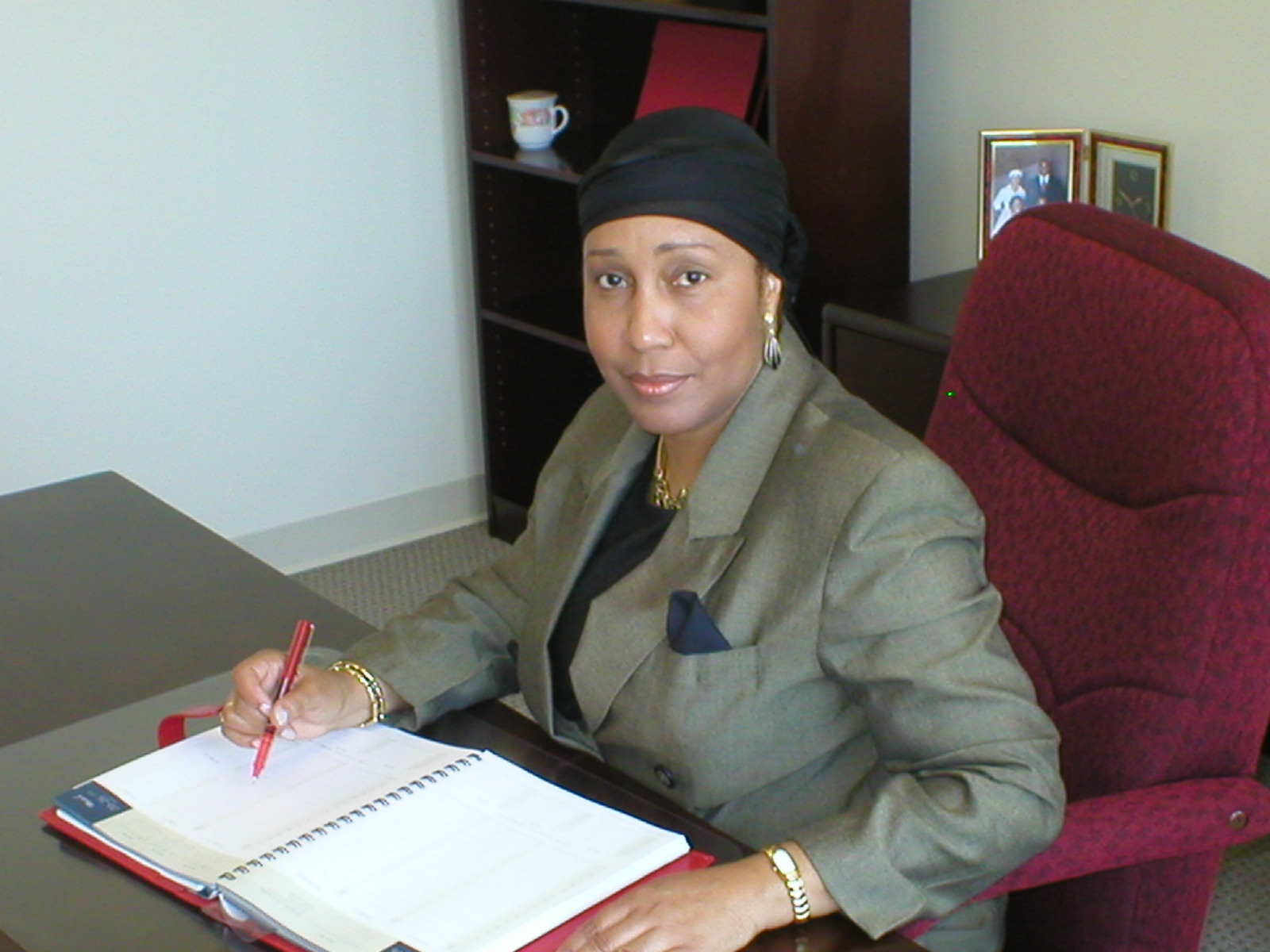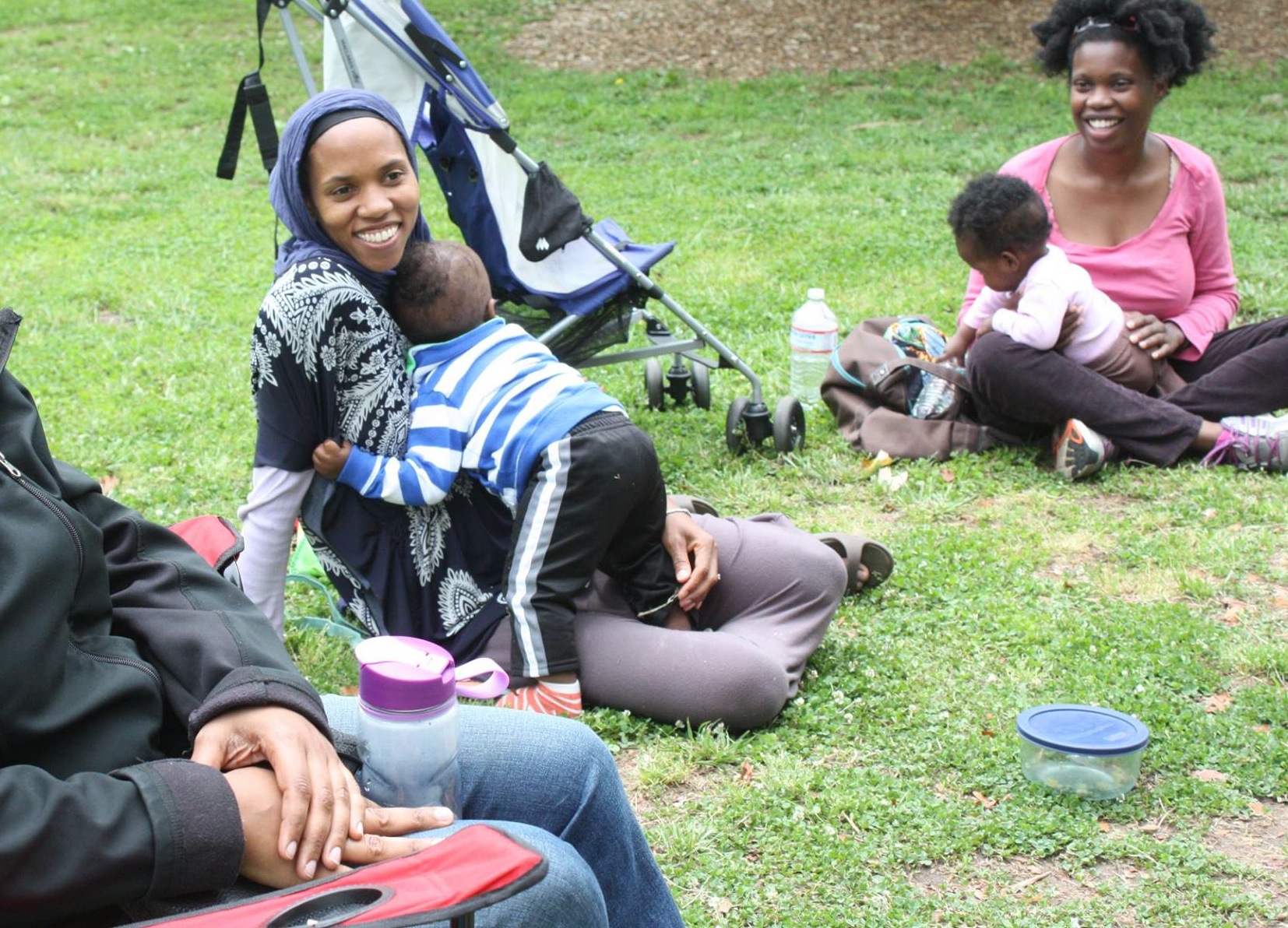I knew in the very first moment of my interview with Sandra El-Amin that I had happened upon a treasure. Delightful was the anticipation of presenting her voice to the world.
“A woman can pursue any career she likes,” Sandra told me. “She can be a Supreme Court justice. But if she has a family, society can’t afford for her to neglect that kind of primary responsibility. So, I feel like if you are blessed to be a mother, you need to be a mother, and that takes precedence over anything else.”
Sandra’s words gave me the courage to wholeheartedly embrace the unpopular choice I had made to leave a tenured professor job and stay at home with my two sons, an infant and a toddler. If a woman as accomplished as Sandra—a Ph.D. and a former director of a private Muslim school—promotes my choice, why couldn’t I? If Sandra honors motherhood on the platform of a feminist, which she defines as “one who loves, nurtures, exalts and respects the feminine nature, gifts, and personality,” why shouldn’t I?

Photo Source: Jamillah Karim
In reality, women like Sandra, who converted to Islam in the 1970s via the Nation of Islam and later followed Imam W.D. Mohammed into Sunni Islam, planted the seeds for me to excel as a scholar and prioritize my role as a mother. Women of the Nation were taught to dedicate their lives as workers in the community and as wives and mothers in the home. After guiding the Nation community to Sunni Islam, Imam Mohammed encouraged women to go to school and mainstream work (many already had in the Nation), but neither he nor his female followers abandoned their regard for women’s unique capacity as mothers.
When I was just a girl, I tapped into one of the most phenomenal powers of mothers– the divine gift to nurture our babies with our own milk. I watched with fascination as women breastfeed their babies under a blanket at the mosque, so much so that the practice was incorporated into my pretend play: my brother acted out the role of the imam at the podium (my mother’s sewing machine) while my sister and I were the mosque women, listening attentively with dolls pressed against our flat chests.
At 32, I had blossomed fully into the women whom I copied. Taking much longer than my community mothers, who had all their babies by 30, I had the career and credentials that would normally make staying at work irresistible.
But, to me, it just didn’t make sense. I was blessed with a situation that many women would die for: a reliable, God-conscious husband who could well provide for his family without the help of his wife. Why then would I assume both the work of provider and the work of mother, which only women can do?
The cooking and housework, sure my husband and I could have divided these chores equally, but that just didn’t happen, and doesn’t happen in most American households, even ones with the best intentions to split the duties at home right down the middle. On top of preparing dinner most nights, I was the one pregnant and working, or breastfeeding/pumping and working.
It became clear to me that I needed to pay attention to this divine gift. I wanted to prioritize my unique ability as a woman to produce life and all that this miracle entailed: the pregnancy, the labor and delivery, the healing, the breastfeeding, the unrivalled bond between mother and child, and the mother’s position as the first teacher.
That I had my first baby prematurely heightened my introspection. I discovered that African American women are at least twice as likely as white women to experience preterm labor and infant mortality, independent of socioeconomic class and education. Was it all a sign, I wondered, that we were not honoring “the wombs” as the Qur’an (4:1) commands us?
Historically, the wombs of African American women were not venerated or protected as our foremothers were systematically violated during slavery and later in the white homes where they worked as domestics. Our foremothers worked alongside men in the fields sun up to sun down, even as they endured the critical phases of motherhood. Their babies kicked in their wombs as they were forced upon, beaten, and hung.
So when I heard Sandra say, “Be a mother,” I heard honor “the wombs that bore you” and the women that came before you. And, if at all possible, allow your men to take full care of you while you dedicate yourself to the awesome task of mothering.
By leaving work, I saw myself inheriting the legacy of women who were forced to do it all and, therefore, would gladly accept the gift of not having to do it all. This is how I interpret African American women embracing the Qur’anic verse that “men are the ones who support and take care of women” (4:34).
Mainstream feminism teaches us to reject such divine statements because they reinforce traditional gender roles. As a scholar inspired to claim and engage feminism, I did the opposite and embraced the divine.
The pursuit to provide women with the optimum conditions to excel as full human beings alongside men—how I define feminism—is best determined not on the basis of modern Western notions of women’s rights, but on the basis of God’s guidance, Who created women, and Whose love and wanting the best for women goes without question.
In the faithful pursuit of feminism, I found the divine affirmations that provided me the strength to be a mother.
Qur’an 46:15: We have commanded the human being to treat his parents kindly—his mother carried him with hardship and delivered him with hardship; his bearing and weaning took a full thirty months—and when he has grown to full strength and (later) reaches the age of forty to say, “Lord, help me to be truly grateful for Your favors to me and to my parents; help me to do good work that pleases You; I am one of those who devote themselves to You.”
(Photo Credit: S. Denson)
Jamillah Karim has a Ph.D. in Islamic Studies from Duke University and is an author, home educator and public speaker. She is co-author of Women of the Nation: Between Black Protest and Sunni Islam (NYU Press, 2014).





I dont understand this conservative, even right wing, wave in #Feminism: All the efforts of Simone de Beauvoir and we still are bad or uncomplete women, even if we are Feminists, if we dont honor our natural priority we have been made for: Reproduction. Because a Phd can’t be the happiness for a woman if you have an useful uterus. I thought that Feminism, even those coming from religious background, are supposed to be subversive, questioning roles and liberate women from the cultural functions we have been subjected to in regard of our biology. I dont see how if feminist to come back home and refrain yourself in the patriarchal frame of housekeeping and motherhood impossed by male centered narratives.
As a muslim and feminist. I struggle to free myself from all that.. but it seems, every day more for me, that is not possible to be a free woman follow the rules.